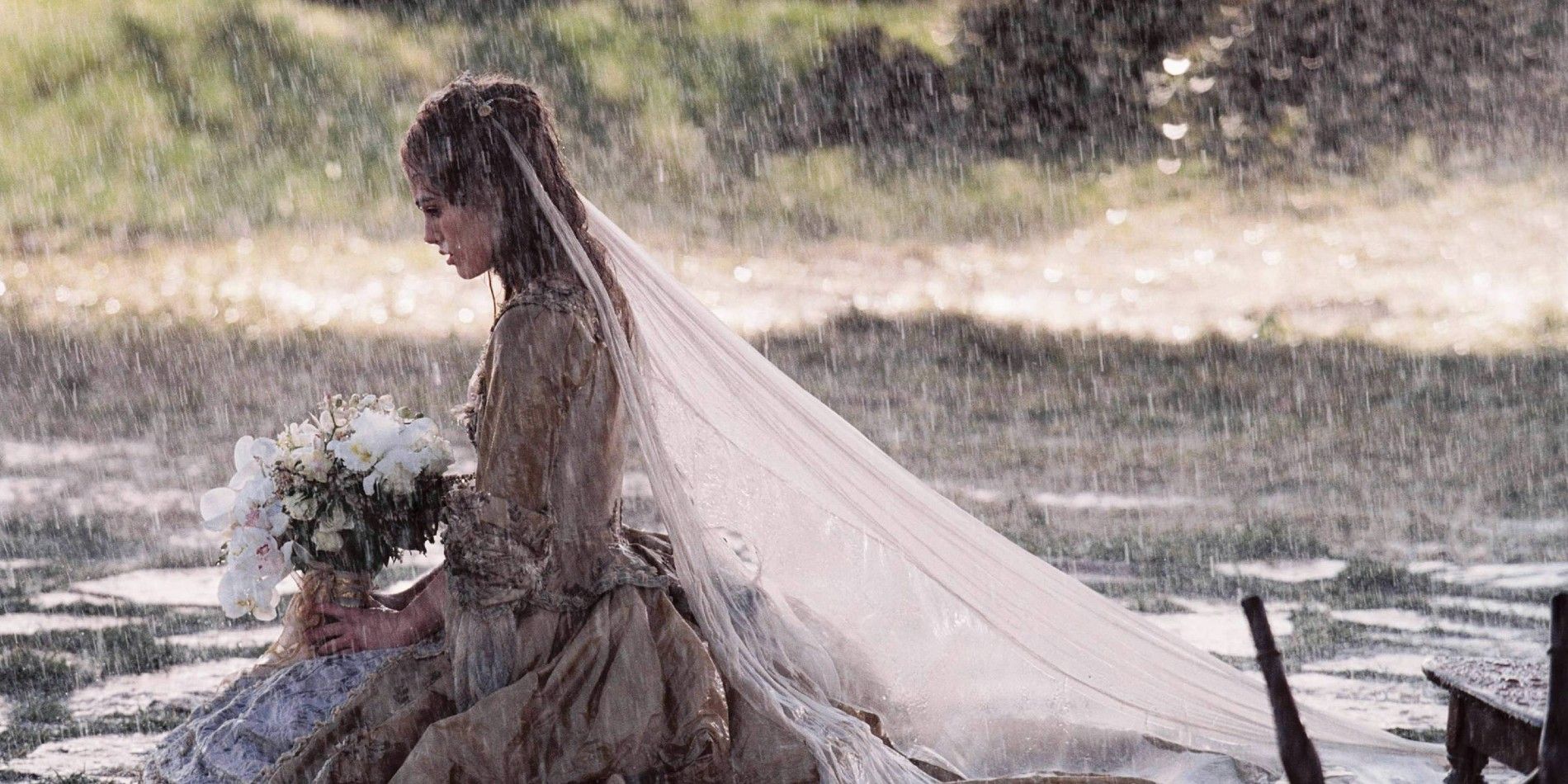Pirates of the Caribbean’s writers have an insightful reason for naming Elizabeth Swann their favorite character. Ted Elliot and Terry Rossio wrote the first four films in the series, putting considerable thought into an overarching story that some have criticized for being convoluted in its multiple plot threads and backstories. Only Rossio received a “story by” credit on the fifth and weakest film, which was instead written by Jeff Nathanson.
Keira Knightley’s Elizabeth began the series as a bored governor’s daughter, yearning for excitement and the chance to meet a real-life pirate. She rejects societal conventions, and her unlawful actions result in her abandoning high society and being forced to reconsider her place in the world. By the end of Gore Verbinski’s Pirates of the Caribbean trilogy, Elizabeth transitions to an entirely different position of respect, ultimately becoming Pirate King of the Brethren Court, now with a more astute outlook on pirate life.
Elliot and Rossio told Box Office Mojo that Elizabeth is their favorite character, in large part due to their admiration for Knightley. Of all the colorful characters they devised for the Pirates of the Caribbean universe, Elizabeth may come as a slight surprise. However, the writers were glad to write a female protagonist at a time when these characters were scarce in blockbusters and contend that the trilogy was always Elizabeth’s story.

According to Ted Elliot, their motivation for writing Elizabeth came from frustration that few female characters were given a traditional hero’s journey. Elliot states that when this did occur “it’s usually a complete imitation of the journey that a male character would take”. He says how they strove to fashion moments for Knightley’s Elizabeth Swann that retained her femininity “but were no less dramatic and complete as they would be for a male character”. Indeed, Elizabeth never relinquishes this side to her character, combining an action hero’s plot with a continued desire for love and marriage, holding onto part of her old life. She is still recognized as a woman but comes to gain the respect of the men aboard the Black Pearl and is dangerously underestimated by others. Pirates of the Caribbean actively incorporates Elizabeth’s womanhood into her story, challenging conventional gender norms through her choice of suitor, clothing, fighting ability, and increasingly cunning nature.
Elliot and Rossio took the character in a bold direction throughout the trilogy. They cite Knightley’s performance for instilling their confidence to believably push the character in a darker direction, such as when Elizabeth kills Jack Sparrow. The sequels juggled several interweaving plotlines, but it’s accurate to say Elizabeth remains the true protagonist. According to their interview with Creative Screenwriting, the writers crafted the first Pirates of the Caribbean in the vein of classical Greek stories, in which the protagonist presents one point of view which is then challenged by the male characters, all presenting an alternative viewpoint. Per Elliot, Elizabeth conveys the “romantic illusion of the outlaw” which is then confronted by the prospect of authority and traditional marriage with Norrington (Jack Davenport), the forbidden and dangerous appeal of blacksmith Will (Orlando Bloom), the charm of scoundrel Jack, and wickedness of Barbossa (Geoffrey Rush).
This is further complicated in the sequels, with Elizabeth’s morality tested by these disparate men. Elliot and Rossio designed Elizabeth to abandon the idealized image of freedom and willingly embrace the complex, murky reality of piracy. In contrast, the writers’ least favorite character was Cutler Beckett (Tom Hollander), whose personal philosophy absolves him of guilt in his villainy. Elizabeth, on the other hand, faces many difficult choices in Pirates of the Caribbean and must own up to the consequences as part of her evolution, making it easy to see why the writers are so enamored with their female hero.




